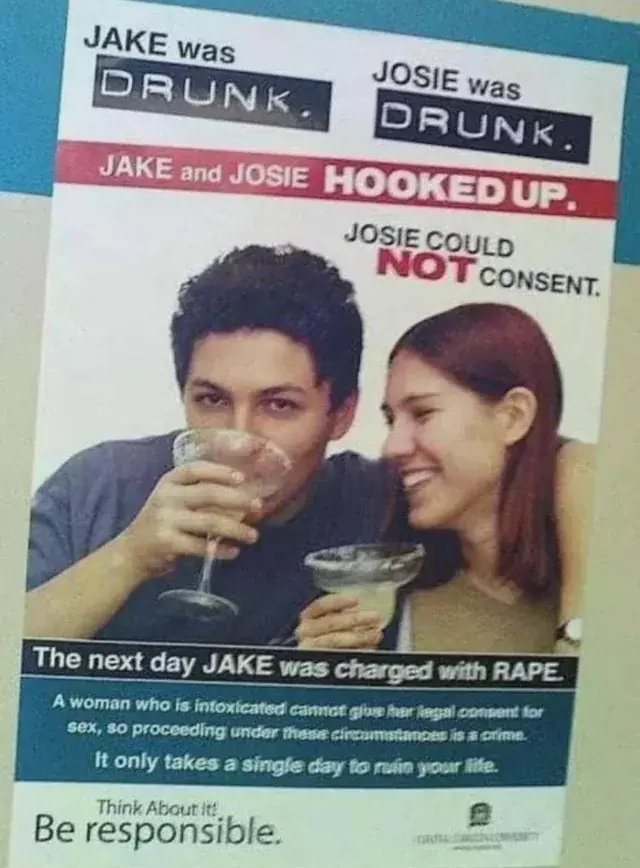this post was submitted on 20 Feb 2024
354 points (88.5% liked)
Facepalm
3289 readers
84 users here now
founded 2 years ago
MODERATORS
you are viewing a single comment's thread
view the rest of the comments
view the rest of the comments

I feel like we need some kind of gradient between "rape" and what you're describing. Some kind of protection in place for inebriated people who later, sober, regret the decision, but doesn't immediately result in such a heavy charge.
The truth is that both sides happen. Drunk people sometimes can consent, drunkenness is a broad spectrum. And drunk people also sometimes cannot consent. Right now the more morally correct stance, in my opinion, is to go full tilt into the "drunk people can't consent" camp and charge both parties, but there almost has to be an intermediate we could apply, no?
To be clear, I'm not a lawyer. I don't exactly know how these cases tend to be tried. I'm basing that on a bit of a layman's understanding.
There definitely is, it's called not being a shitty person. If the lady you're with is clearly hammered, or you know they've had more than their normal amount, you don't try anything. Anyone with a speck of decency or morality will know the difference.
So wait, let me get this straight. Are you saying that it's the same thing to hold down and force someone, or coerce them with threats etc, as it is to get them drunk (not maliciously, just over the course of a natural evening together)and end up sleeping together? I don't think you necessarily are, but I just want to make sure.
Assuming we're on the same page there, then what I'm saying is that these two cases need a -legal- difference, since they're clearly morally different. Both can end up being damaging to the other party, but one is clearly violating someone's rights, and the other has a lot of nuance around it.